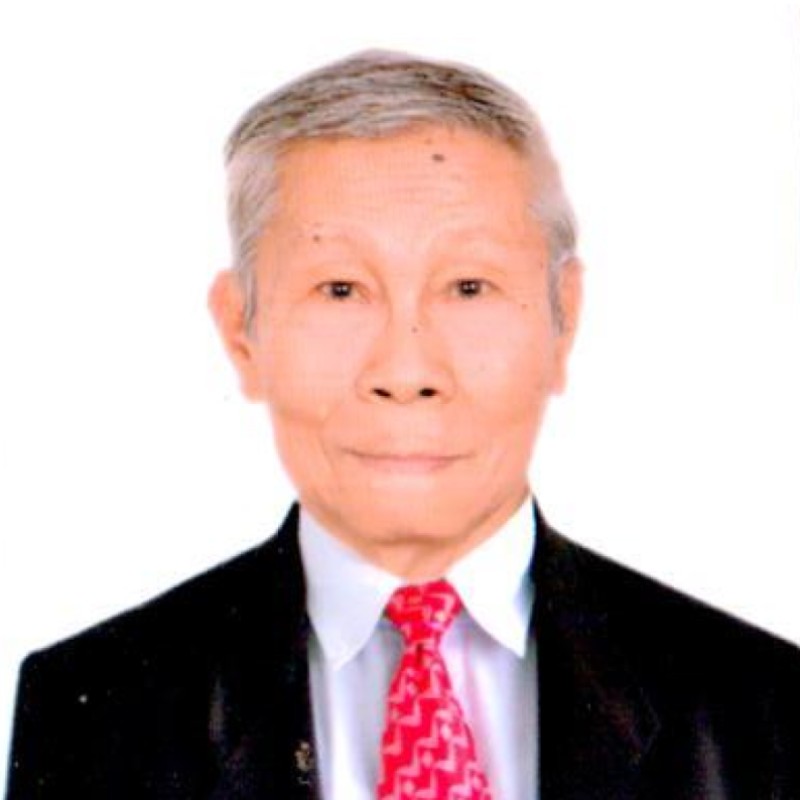GLIMPSES & GAZES
By Severino C. Samonte
PNA hosted 1st ASEAN Editors' Conference in 1983
Share
Many of the young Filipino journalists today may be interested to know that Manila once became a meeting place of publishers, top editors and writers of newspapers, television-radio stations, news agencies and magazines from across the Asian region in the 1980s.
That was when the 10-year-old Philippine News Agency (PNA), the government's official newswire service, hosted the first ASEAN Editors' Conference at Manila's Holiday Inn from Jan. 8 to 22, 1983, or 40 years ago.
The conference was organized by the erstwhile Office of Media Affairs (OMA) headed by then Information Minister Gregorio S. Cendaña, in cooperation with the Ministry of Foreign Affairs and other Philippine government national agencies, and the Committee on Culture and Information (COCI) of the Association of Southeast Asian Nations or ASEAN.
It took place after the lifting on Jan. 17, 1981 of the effectivity of martial law which then President Ferdinand E. Marcos imposed nationwide on Sept. 21, 1972 and resulted in the closure of all newspapers, magazines, radio and TV stations and all other media establishments in the country.
With the theme “ASEAN Steps Toward a New World Information Order,” the meeting was keynoted by Marcos himself.
Aside from PNA staff members and editors of major Philippine dailies and community papers, the conference was attended by delegates from the National Press Club (NPC) of the Philippines, Manila Overseas Press Club (MOPC), Foreign Correspondents Club of the Philippines (FCCP) and managers and broadcasters of key radio and television stations in the Philippines.
The PNA was represented in the meeting by its then General Manager Vicente Maliwanag, formerly of Manila Bureau of United Press International (UPI), and senior editors Alberto K. Corvera, Rufino O. Rogel, Angelo S. Sambo, Iluminado M. Varela, Honor Blanco Cabie, Henry Redula and Rolando Espina.
Foreign delegates and observers came from Bernama of Malaysia, Antara of Indonesia, Thai News Agency of Thailand, Vietnam News Agency, Singapore Broadcasting Corporation, Khao San Pathet Lao News Agency of Laos, Confederation of ASEAN Journalists (CAJ), Press Trust of India (PTI), Yonhap News Agency of South Korea, Kyodo News Agency of Japan, Korean Central News Agency (KCNA) of North Korea, Islamic Republic News Agency (IRNA) of Iran, Xinhua News Agency of People's Republic of China, and Tass News Agency of Russia, among other participants from the Asia-Pacific News Network (ANN) and the expanded Organization of Asia-Pacific News Agencies (OANA).
Major Manila newspaper editors and publishers who graced the occasion included Enrique Romualdez, Neal Cruz, Federico Pascual and Virgilio Lumicao of the Express Group; Manuel Salak, Augusto Villanueva, Isagani Yambot and Rosauro Acosta of the Journal Group; Ben F. Rodriguez, Pat H. Gonzales, Crispulo Icban and George Gagui of the Bulletin Group; Kerima Polotan Tuvera of Evening Post Group; Nattie Templo Redublo of Daily Tribune; and Raul Locsin of Business Day.
It is with sadness for me to note that many of the Filipino publishers, editors and writers mentioned above have since gone beyond the journalistic field.
The Manila conference was held two-and-a-half years after the organization in Manila of the ASEAN News Exchange (ANEX) cooperative endeavor spearheaded by PNA, Bernama and Antara.
Then Director Lorenzo J. Cruz (RIP) of the Bureau of National and Foreign Information (BNFI), the original mother bureau of PNA under the defunct Department of Public Information (DPI), said at the launching of the ANEX on June 18, 1980:
"The establishment of this network marks a milestone in regional cooperative undertaking in the communication field. With this network, the ASEAN news agencies now acquire the editorial and technical capability for direct news exchange. Under our agreement, each agency maintains full control over its own news output and outflow, without any editorial interference or supervision by other agencies."
Five years earlier, in March 1975, leading journalists from the original five ASEAN countries, including PNA and the National Press Club of the Philippines (NPC), met in Jakarta, Indonesia to create the Confederation of ASEAN Journalists (CAJ) to promote regional cooperation and act as a communicator for the region's diversity.
Since then, CAJ has played a key role in fostering connections among the people of the ASEAN countries who have different historical and cultural backgrounds.
By the way, PNA was organized as the official news agency of the Republic of the Philippines and started operating on March 1, 1973. It succeeded the privately-owned news cooperative Philippine New Service (PNS), which was set up by the country’s major newspapers in 1950.
Incidentally, PNS was forced to cease its 24-hour daily operations as a result of the declaration of a nationwide state of martial law on Sept. 21, 1972 by then President Marcos.
Although there was no official closure order against PNS then, it had voluntarily stopped its operations three days after the effectivity of martial law because media organizations – daily newspapers, radio and television stations, community papers – that subscribed to its news service were closed by government troops.
Comments
About the Columnist

He began his journalistic career by contributing to the Liwayway and Bulaklak magazines in the 1960’s. He was the night editor of the Philippine News Service when Martial Law was declared in September 1972. When the Philippine News Agency was organized in March 1973, he was named national news editor because of his news wire service experience.
He retired as executive news editor in 2003. He also served as executive editor of the Malacanang-based Presidential News Desk from 1993 to 1996 and from 2005 to 2008.
